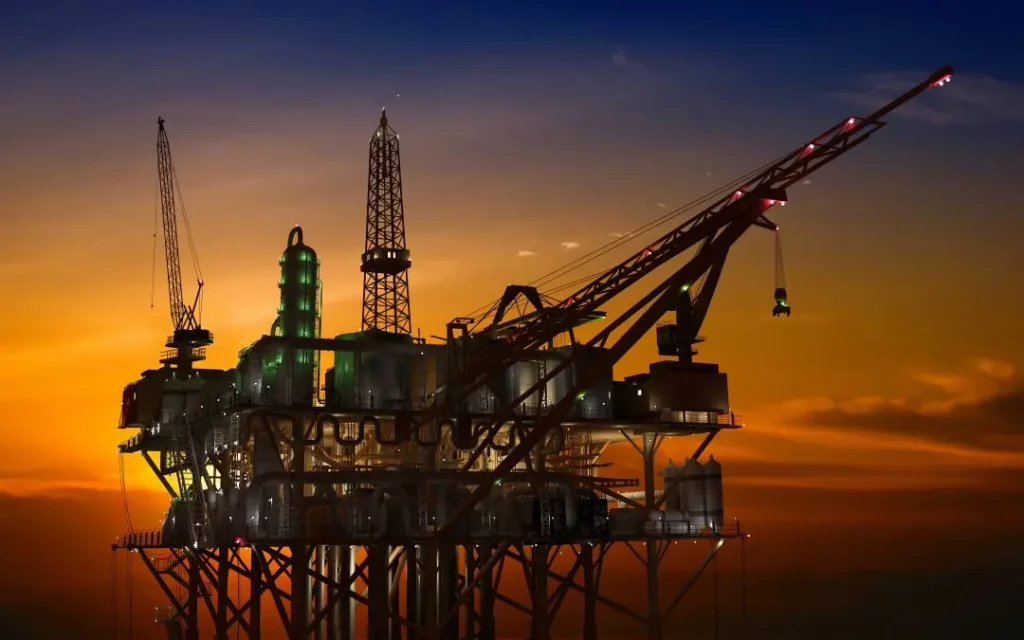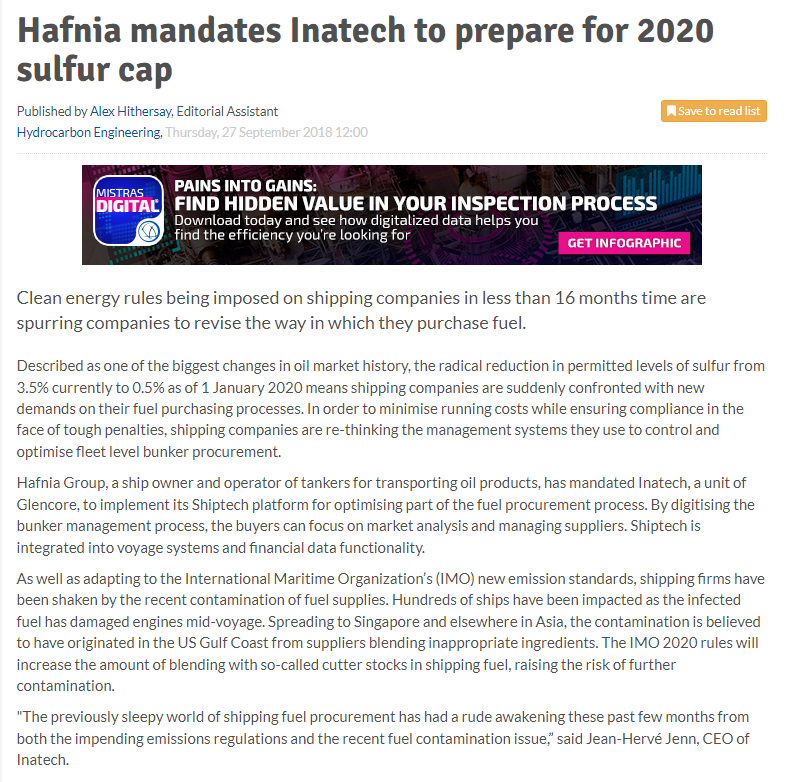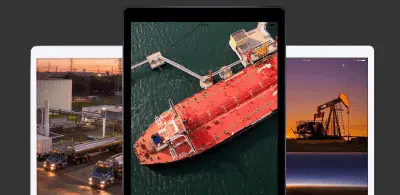
HAFNIA PLANS FOR SHIPPING EMISSIONS CHALLENGE IN 2020 BY MANDATING INATECH TO DIGITISE FUEL PROCUREMENT
- 2020 emission regulations spur shipping companies to rethink fuel procurement process
- Denmark’s Hafnia invests in digitisation to optimise bunker procurement and ensure compliance
Clean energy rules being imposed on shipping companies in less than 16 months time are spurring companies to revise the way in which they purchase fuel.
Described as one of the biggest changes in oil market history, the radical reduction in permitted levels of sulphur from 3.5% currently to 0.5% as of January 1, 2020, means shipping companies are suddenly confronted with new demands on their fuel purchasing processes. In order to minimise running costs while ensuring compliance in the face of tough penalties, shipping companies are re-thinking the management systems they use to control and optimise fleet level bunker procurement.
Hafnia Tankers, the Danish ship operator of tankers for transporting oil products, has mandated Inatech, a unit of Glencore, to implement its Shiptech platform for optimising the fuel procurement process. By digitising the bunker management process, the buyers can focus on market analysis and managing suppliers. Shiptech is integrated into voyage systems and financial data functionality to ensure seamless flow of information. This ensures digitising the entire process end to end, coupled with data management for advanced analytics.
“With the imminent arrival of the 2020 emissions regulations, we needed to find better ways to buy and monitor fuel purchases,” said Peter Grunwaldt, General Manager for bunkers at Hafnia Tankers in Copenhagen. “Shiptech automates a lot of the fleet monitoring and fuel price comparison processes, and this will free up our team to instead think strategically and respond quickly as situations emerge. It also allows us to track the quality of the fuel, which is crucial for us.”
As well as adapting to the International Maritime Organisation’s new emission standards, shipping firms have been shaken by the recent contamination of fuel supplies. Hundreds of ships have been impacted as the infected fuel has damaged engines mid-voyage. Spreading to Singapore and elsewhere in Asia, the contamination is believed to have originated in the US Gulf Coast from suppliers blending inappropriate ingredients. The IMO 2020 rules will increase the amount of blending with so-called cutter stocks in shipping fuel, raising the risk of further contamination.
“The previously sleepy world of shipping fuel procurement has had a rude awakening these past few months from both the impending emissions regulations and the recent fuel contamination issue,” said Jean-Hervé Jenn, CEO of Inatech. “We’re working hard to ensure that ship operators have the best tools possible to navigate in an increasingly complex arena.”
The growing demand for technology has expanded Shiptech operations to serve companies operating more than 2,000 vessels worldwide.
About

Hafnia Management, based in Copenhagen, is an international shipping company providing seaborne transportation of petroleum products worldwide. It operates a modern fleet of short-range, medium-range and long-range1 product tankers that are capable of carrying refined oil products. The combined fleet of Hafnia is around 220 vessels.





